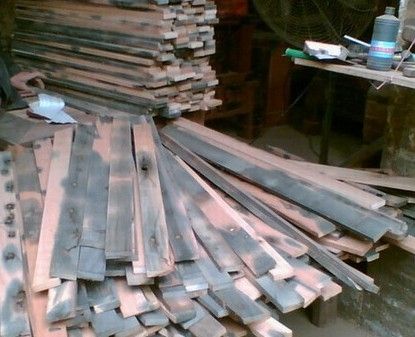 Experts from various sectors have recently shared their insights on the development of the inorganic non-metallic new materials industry, highlighting both its potential and the challenges it faces. Yu Guobo, Deputy General Manager of Sinoma Group Co., Ltd., pointed out that while the company's new material sector has seen rapid growth, profitability remains a concern. In 2012, sales reached about 15 billion yuan, but the industry still needs more strategic support.
From a national perspective, there is a need for clearer direction in the development of new materials. First, greater emphasis should be placed on supporting the entire supply chain, not just research and development. Currently, most funding goes to universities and research institutions, with less attention given to scaling up from lab to market. Second, improving performance evaluation systems is essential. Third, promoting broader applications of new materials will help drive demand. Finally, large enterprises must enhance their ability to integrate resources effectively.
Xu Jian, a researcher at the Chinese Academy of Sciences, emphasized the importance of strategy and identifying key areas where China lags behind globally. He also highlighted the opportunities presented by urbanization and marine strategies. Xue Zhongmin, Vice Chairman of Sinoma Materials Science and Technology, called for stronger collaboration between companies and increased participation in major scientific projects.
Liu Changfa noted that one of the main bottlenecks in the industry is the misalignment between material development and application. He suggested expanding application fields, overcoming technological dependencies, and shifting state support from research institutes to SMEs. Zhou Ji from Tsinghua University pointed out that unstable raw material quality and outdated equipment are critical issues that need urgent resolution.
Chen Kexin from the National Natural Science Foundation said the problem lies largely in the quality of raw material powders, which the government aims to address. Li Hongxia from China Iron and Steel Corp. stressed the need for better equipment and raw materials, as well as closer collaboration between material developers and end-users.
Zhu Jianxun from Sinoma urged the government to implement policies like tax incentives to encourage the use of domestic new materials. Li Hongxia also raised concerns about intellectual property protection in the refractories industry, noting that R&D investment is low and talent poaching is common.
Liu Ying from Sinoma Technology highlighted the fragmented nature of the industry and the need for systemic innovation and stronger IP protection. Liu Changfa reiterated that government intervention should focus on regulating the industry and protecting independent innovation.
Pan Aihua praised the proposals made by experts and outlined the Ministry of Industry and Information Technology’s plans to improve standards, quality, branding, and IP protection. He emphasized the importance of collaboration across the supply chain and ongoing efforts to align new material development with social and industrial trends.
Experts from various sectors have recently shared their insights on the development of the inorganic non-metallic new materials industry, highlighting both its potential and the challenges it faces. Yu Guobo, Deputy General Manager of Sinoma Group Co., Ltd., pointed out that while the company's new material sector has seen rapid growth, profitability remains a concern. In 2012, sales reached about 15 billion yuan, but the industry still needs more strategic support.
From a national perspective, there is a need for clearer direction in the development of new materials. First, greater emphasis should be placed on supporting the entire supply chain, not just research and development. Currently, most funding goes to universities and research institutions, with less attention given to scaling up from lab to market. Second, improving performance evaluation systems is essential. Third, promoting broader applications of new materials will help drive demand. Finally, large enterprises must enhance their ability to integrate resources effectively.
Xu Jian, a researcher at the Chinese Academy of Sciences, emphasized the importance of strategy and identifying key areas where China lags behind globally. He also highlighted the opportunities presented by urbanization and marine strategies. Xue Zhongmin, Vice Chairman of Sinoma Materials Science and Technology, called for stronger collaboration between companies and increased participation in major scientific projects.
Liu Changfa noted that one of the main bottlenecks in the industry is the misalignment between material development and application. He suggested expanding application fields, overcoming technological dependencies, and shifting state support from research institutes to SMEs. Zhou Ji from Tsinghua University pointed out that unstable raw material quality and outdated equipment are critical issues that need urgent resolution.
Chen Kexin from the National Natural Science Foundation said the problem lies largely in the quality of raw material powders, which the government aims to address. Li Hongxia from China Iron and Steel Corp. stressed the need for better equipment and raw materials, as well as closer collaboration between material developers and end-users.
Zhu Jianxun from Sinoma urged the government to implement policies like tax incentives to encourage the use of domestic new materials. Li Hongxia also raised concerns about intellectual property protection in the refractories industry, noting that R&D investment is low and talent poaching is common.
Liu Ying from Sinoma Technology highlighted the fragmented nature of the industry and the need for systemic innovation and stronger IP protection. Liu Changfa reiterated that government intervention should focus on regulating the industry and protecting independent innovation.
Pan Aihua praised the proposals made by experts and outlined the Ministry of Industry and Information Technology’s plans to improve standards, quality, branding, and IP protection. He emphasized the importance of collaboration across the supply chain and ongoing efforts to align new material development with social and industrial trends.Several types of testing machine for mortar lab or concrete lab are available to supply, such as mixer, flexural/compressive strength testing machine, universal test machine, shrinkage/expansion testing equipment, vibration table, seiving machine for grading, pull-off testing machine, shear strength testing machine etc. It is also possible to tailor-made the facilities or equipments to fulfil the specified test method or international test standard.
Dry mortar Lab,Pull-off tester; mortar lab test facility,lab dry mortar mixer,strength test machine
Shanghai Na Long Tech Co., Ltd , https://www.na-long.com
![<?echo $_SERVER['SERVER_NAME'];?>](/template/twentyseventeen/skin/images/header.jpg)